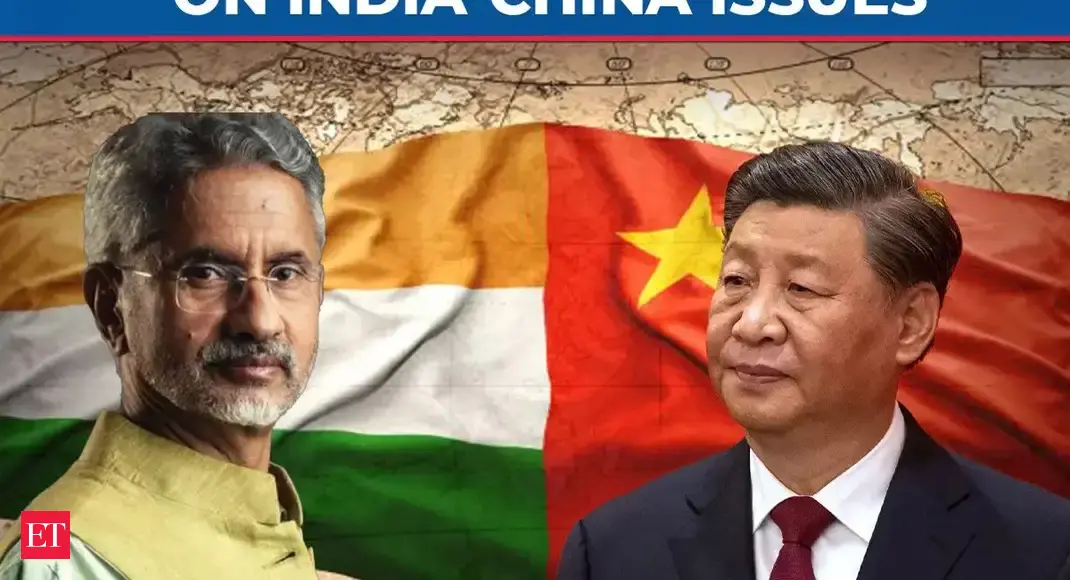

At the ET World Leaders Forum (WLF) 2025, External Affairs Minister S. Jaishankar addressed the intricate dynamics of India-China relations, emphasizing the critical role of border peace in fostering improved ties. He highlighted that maintaining peace along the border areas is a prerequisite for talks with China.
Jaishankar acknowledged the historical complexities, including the boundary issue dating back to the 1950s, which remains a central point of concern. He also recalled the Galwan clash as a particularly difficult period in the relationship. Despite these challenges, he noted that the overall trend in India-China relations has been "net positive".
The External Affairs Minister pointed out existing problems, such as the growing trade deficit between New Delhi and Beijing, which was a concern even during his tenure as ambassador to China from 2009 to 2013. More recent issues, like those related to rare earth magnets, have also emerged. India continues to address legitimate investment and trade concerns with China while navigating multifaceted bilateral timelines.
In light of recent developments, both India and China have expressed a desire to move forward and rebuild their relationship. Chinese Foreign Minister Wang Yi's visit to New Delhi in August 2025 marked a renewed effort to improve Sino-Indian relations. During the visit, Wang Yi met with Prime Minister Narendra Modi, and both sides agreed to revive dialogue mechanisms and form new working groups on boundary issues and peacekeeping. They also decided to resume direct flights and border trade, which had been suspended since 2020.
Both nations appear to recognize the mutual benefits of strategic recalibration. Improved ties promise India greater access to Chinese markets, enhanced trade and investment flows, and reduced dependence on Western supply chains. China, in turn, stands to benefit from Indian tech and services.
However, the path to normalized relations is not without its challenges. Despite some cooling of tensions, the border remains a hotly contested issue. India has concerns regarding China's construction of a mega-dam on the Yarlung Tsangpo River in Tibet, fearing its impact on downstream communities.
Furthermore, historical mistrust and structural fissures continue to exist. India has consistently maintained that the development of ties is contingent on the principles of mutual sensitivity, mutual respect, and mutual interests. External Affairs Minister Jaishankar has stressed that differences must not turn into disputes and that the ability to jointly maintain peace and tranquility in the border areas is the basis for any positive momentum in the relationship.
Amidst these complexities, a potential shift in the global landscape, influenced by factors such as trade imbalances and geopolitical realignments, appears to be subtly influencing the dynamics between India and China.